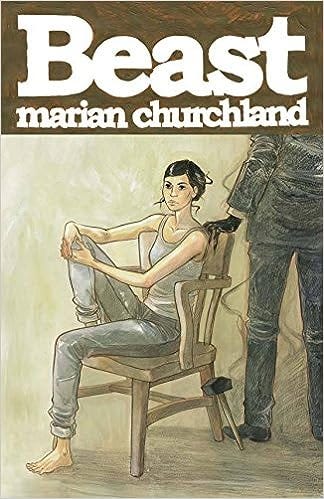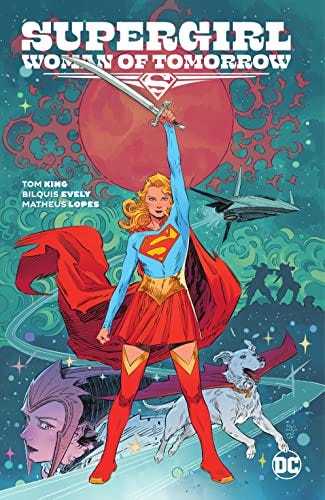.
Two fascinating women who crash into classic tales and remake them in their own image. "Beauty and the Beast" becomes a sculptor and a shadow, and Supergirl gets to be Rooster Cogburn in a scifi retelling of True Grit.
They are both every bit as good as I hope that sounds.
085) Beast by Marian Churchland, finished July 24
Fantastic Comics has been having this crazy blowout sale on older graphic novels they need to unload, so the boys and I stopped by Saturday and picked up a dozen books for fifty bucks, including this one.
This is a fresh take on Beauty and the Beast and it is, in fact, actually fresh. It's roughly the modern day (I'm estimating 2000) and our hero is a young sculptor who is hired to attack a large piece of marble. Her benefactor goes by Beast and seems to be made of shadows, but she doesn't run and she does sculpt.
The art is beautiful and melancholy. I'm not 100% sure about the ending (a second reading might help) but the book as a whole is a clear victory.
an hour maybe
086) Supergirl: Woman of Tomorrow by King/Evely/Lopes, finished date
By the time something comes into the library and I read it, I've often forgotten why I wanted to read it in the first place. Luckily, I trust past me and so even with a stack of comics I'm excited about (see above) I picked this up to read first.
I didn't realize until I sat down to write this review that it was written by the same author of a Superman story I wished to compare it to. Reading that review it's clear I liked the story, but the memory I'm left with most clearly is how deeply it expected you to know the DC Universe and all its fiddly details. This story too sends a supersomebody around the universe in service of a young girl but it avoids all the minor stumbling that got in Superman's way. And it's even more successful at managing the levels of storytelling and the cuts back and forth and the voice-forward narrator. In other words, it much the same but Supergirl is superior on every level. Except demanding of the reader a knowledge of minutia. And who wants to win in that category?
Part of what works particularly well in this volume is the model its following. If Tom King were to tell me Woman of Tomorrow was not based on True Grit I would call him a liar. The basic plot and the lead (nonsuper) protagonist are straight from the pages of that great American novel. This is not a knock. Everything's a remix and the trick is to steal well and understand the value of what you're lifting. As Eliot put it, "good poets make [what is stolen] into something better, or at least something different. The good poet welds his theft into a whole of feeling which is unique, utterly different from that from which it was torn." That's what happens here. Because the differences between True Grit and Woman of Tomorrow are legion, but their souls remain in deep conversation. If someone wants to make an excellent Supergirl "television event," this should be their source material.
It's not just King's writing of course that makes this work. We're talking about comics, after all. While he may have introduced the restraints and the structure, it would not live without the astonishing and beautiful work of Bilquis Evely (colored with aplomb by Matheus Lopes).
One of the problems Lady Steed has with action movies is the action. It's cool and everything but it just goes on and on and on. She's not wrong. And while the ballet of violence provides its own beauty and done well can marvel and amaze, can reveal character and theme, can matter—it can also, not matter how excellent, drag a story to a dead stop. This story is about decades of violence, but the violence rarely if even holds center stage by itself, and some of the largest and most impressive fight scenes occurred between issues and were left unseen.
Incidentally, I disagree with the ending of Woman of Tomorrow, but exactly why what happened is what happened is open to debate and criticism and analysis. In other words, it is literary. I'm not making any claims that Woman of Tomorrow is perfect or anything, but it certainly does rise to the level of literature.
how long goes here






